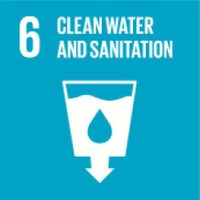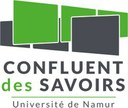Clean water and sanitation
 Research
Research
Alle the "clean water and sanitation" publications on the UNamur research portal.
Social impact and actions
Corporate initiatives
A new research partnership with the University of Lorraine
The URBE and UR AFPA are both experts in aquaculture. The aim of the project is to understand the effects of domestication on the reproduction and welfare of new species in aquaculture. The chosen model is the Zebra Fish. The fish will arrive from Bangladesh and will be in the wild. But we don't eat Zebra Fish, do we? So, why was this model chosen? First of all, because their genome is well known and a lot of bibliographic resources are available. Then, it is a species which reproduces quickly (a few months are enough to obtain a new generation). This enables to quickly analyze its resistance to stress and its reproduction in captivity. It should also be noted that the study plans to let the fish develop without making any selection, as is generally the case in farms. In this way, we can see whether domestication syndromes appear naturally, including phenotypic changes (appearance, morphology, levels of the stress hormone called cortisol, etc.). More information here...
Water consumption
Over the years, several initiatives have been taken to reduce this consumption:
- Maintenance: systematic hunting for water leaks and analysis of the water circulating in the pipes
- Toilets: flushes with water-saving devices and automatic flushing of urinals (an action that now saves 3,000 cubic metres of water per year)
- Labs: cooling system for scientific machines with recycled water in a closed circuit rather than waste city water.
CDS exhibition - the health of our rivers
| An exhibition organized by the Confluent des Savoirs (CDS) to make research and society meet around a project called "DIADeM". Several French-speaking Walloon partners from universities, laboratories or water actors have worked together to develop common strategies to be able to diagnose the water quality of our rivers. More info (in French) here... |  |
River cleanup Operation
The University of Namur took part to the river cleanup operation organized by the "Capitainerie" of Jambes.
Collaborations and partnerships
CoVWWSurv - National surveillance of SARS-CoV-2 and its variants in sewage
Together with UAntwerp and Ughent, the University of Namur takes part in the "COVWWSURV project. It concerns the implementation of a surveillance system for coronavirus (SARS-CoV-2) through the analysis of sewage, the objective being the early detection of any significant evolution of the circulation of the virus in the population. This surveillance system will cover approximately 45% of the Belgian population, by means of the analysis of the sewage entering the wastewater treatment plant, at a rate of two times per week.
Research institute
Institute of Life, Earth and Environment (ILEE)
|
Research at the Institute of Life, Earth and Environment (ILEE) fits in with several of the Sustainable Development Goals (SDGs) defined by the United Nations. For example, the impact of multiple stress factors and/or pollutants on organisms as well as on ecosystems is studied and solutions are sought to strengthen their resistance and resilience and/or limit harmful products. In addition, by prospecting and characterising geological resources and integrating human use over the centuries, from Antiquity to the current Anthropocene, ILEE is contributing to better sustainable management of natural resources, including architecture and art. The transition to more sustainable agriculture is being investigated through the concept of ecosystem services, using mapping, modelling and integrated assessment. The consequences of climate change on migrations and interactions between the various agents responsible for the transmission of vector-borne and zoonotic diseases are also at the heart of ILEE's research. Read more... |
 |
Spin-off
e-biom
| A UNamur spin-off created with the support of the SPW Research FIRST Spin-off programme, e-biom combines an analysis laboratory and a scientific consultancy dedicated to biodiversity conservation, ecology and environmental protection. The aim is to support public and private players in integrating biodiversity considerations into all projects. More info here… |  |
TRAQUA
| A UNamur spin-off created with the support of the SPW Research FIRST Spin-off programme TRAQUA is a consultancy firm specialised in water flow analysis and monitoring techniques. They offer technological solutions and made-to-measure expertise for all hydrogeological or hydrological problems (analysis, diagnosis, monitoring). More info here… |  |
In the media (in french)
Chemical pollution of water | Frédéric Silvestre (UNamur - ILEE) and Krishna Das (ULiège) explain the fundamental issues of ecotoxicology and the effects on fauna, flora and humans in the programme "Les Eclaireurs" on 01/10/2022 (RTBF/auvio). Read the article "Chemical pollution: no water is spared!" by RTBF.
The ecological transition in the Province of Namur | Amaël Poulain (UNamur, TRAQUA spin-off) insists on the urgent challenges in terms of water resource management for the future in the programme "On saura tout" on 14/09/2022 (LN24).
A new tool to track down the path of water underground | Amaël Poulain (UNamur, spin-off TRAQUA). The first tool from the Traqua start-up at the University of Namur can be used to determine the path taken by water underground. Previously, hydrogeologists had to disperse a fluorescent powder in the water and then track it to find out the path it took. Today, there is no need to visually follow this fluorescent trail. RTBF (24/06/2021).















